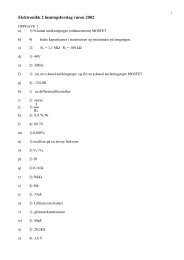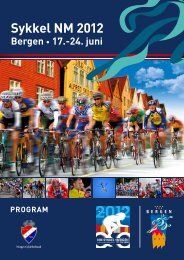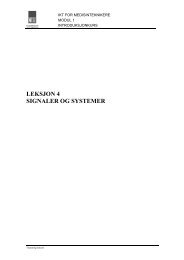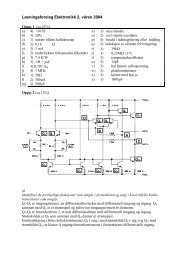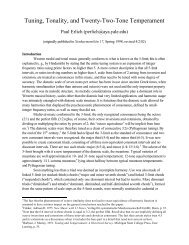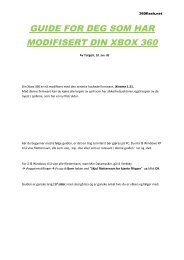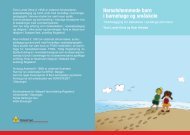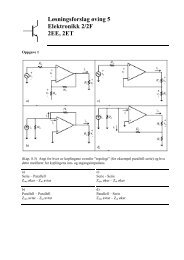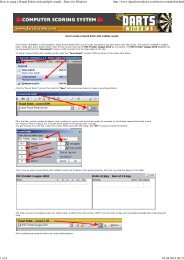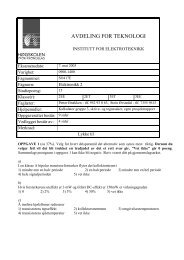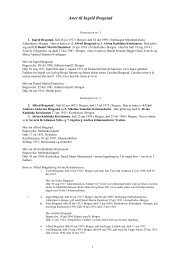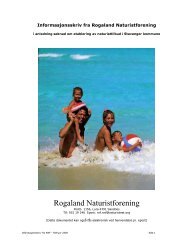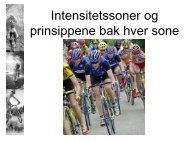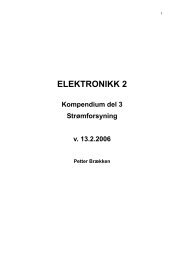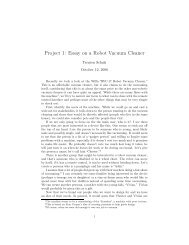The Online World resources handbook
The Online World resources handbook
The Online World resources handbook
You also want an ePaper? Increase the reach of your titles
YUMPU automatically turns print PDFs into web optimized ePapers that Google loves.
Your electronic daily news http://home.eunet.no/~presno/bok/9.html<br />
After a while, a list of files in the Global Interactive News Briefs Archive arrives in my<br />
mailbox. Each brief contains a digest of articles about the Internet printed in media<br />
around the world. I return the URL of the most recent news brief to the Agora server to<br />
receive the full report.<br />
Some time ago, a well known Norwegian industrialist visited my office. I showed<br />
off online searching in Brainwave for NewsNet newsletters, and stumbled over a story<br />
about his company.<br />
"Incredible!" he said. "We have not even announced this to our Norwegian<br />
employees yet."<br />
Sometimes, American online services give news from other countries earlier than you<br />
can get it on online services from within these countries. Besides, you may prefer stories<br />
in English.<br />
Most Norwegians prefer to read news in Norwegian. <strong>The</strong> Japanese want it in their<br />
language, and the French in French. If they can get the news earlier than their<br />
competitors, however, most are willing to read English.<br />
Few master many languages. Unless you live in a country where they talk Arabic,<br />
Chinese or French, chances are that you cannot read news in these languages. English,<br />
however, is a popular second choice in many countries, and it has become the unofficial<br />
Esperanto language of the online world.<br />
Reading news translated from another language has its risks. Translators often make<br />
mistakes. One common reason is time pressure, another inadequate knowledge of the<br />
source language. <strong>The</strong>ir cultural background may prevent them from writing an unbiased<br />
shorter version of the source text.<br />
<strong>The</strong> risk of inaccuracies increases when a story, for example initially translated<br />
from Spanish into English, are being translated into a third language.<br />
Avoid news that has been translated more than once, or risk the following type of<br />
experience:<br />
On September 19, 1991, Norwegian TV brought news from Moscow. <strong>The</strong>y<br />
told that Russian president Boris Yeltsin had a heart attack.<br />
<strong>The</strong> online report from Associated Press, which arrived 7.5 hours<br />
earlier, talked about "a minor heart attack" with the following additional<br />
explanation: "In Russian, the phrase 'heart attack' has a broader meaning<br />
than in English. It is commonly used to refer to a range of ailments from<br />
chest pains to actual heart failure."<br />
Still, expect your "personal online daily newspaper" capable of giving you the news<br />
faster and more correctly than traditional print media. Some news is only available in<br />
electronic form.<br />
Seven minutes way back in 1991<br />
On September 19, I called CompuServe to read news and gather information about<br />
online news sources.<br />
According to my log, I connected through Infonet in Oslo (see Chapter 13). <strong>The</strong><br />
total cost for seven minutes was US$6.00, which included the cost of a long distance call<br />
to Oslo. (Today, using CompuServe's Standard Pricing Plan, the cost is much less!)<br />
I read some stories, while they scrolled over the screen. All was captured to a file<br />
on my hard disk for later study. <strong>The</strong> size of this file grew to 32.000 characters, or almost<br />
15 single spaced typewritten pages (A 4 size). If I had spent less time reviewing the lists<br />
of available stories, seven minutes would have given a larger file.<br />
Right after having logged on, a menu of stories appeared on my screen. <strong>The</strong><br />
headline read "News from CompuServe."<br />
<strong>The</strong> two first items caught my attention, and I requested the text. One had 20 lines<br />
about an easier method of finding files in the forum libraries, the other ten lines about<br />
writing addresses for international fax messages.<br />
<strong>The</strong> command GO APV gave me Associated Press News Wires. You will find many<br />
3 of 14 23.11.2009 15:46



